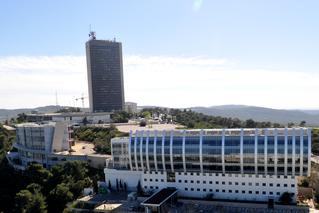 CC BY 3.0
CC BY 3.0
Update (9 March, 2015): The court accepted ACRI’s arguments and expressed severe criticism of the university’s policy of limiting public activities. The court gave the university 60 days to alter the university charter in line with the principles of free speech, after which a new hearing will take place.
On March 9, 2015, the Supreme Court heard an appeal on a lower court ruling that permits the President of the University of Haifa to impose sweeping restrictions on political activity on campus. The appeal was heard by Justices Hayot, Meltzer and Hendel.
The appellants, comprised of students and lecturers from the university, together with the Association for Civil Rights in Israel (ACRI) are demanding the removal of a clause in the university regulations that states that:
“The President, following consultation with the Rector, the Vice-President for Administration and the Dean of Students, is authorized to order the termination or prevention of all public activities for a limited time, and may adopt any means he deems necessary for that purpose.”
The same clause define public activity as “any political, cultural, social, entertainment or academic activity (excluding educational activity), including rallies, demonstrations, lectures, the distribution of leaflets, the erection of stalls, the screening of films, and any other public activity (including those within a closed area), except for activity that is organized by university departments.”
In recent years, university authorities have made extensive use of these regulations in order to stifle political activity on campus, with a particular focus on events and initiatives organized by Arab students. Among a long list of prohibitions, protests against Operation Protective Edge were disallowed, and events commemorating the Nakba have been regularly prevented.
According to ACRI Attorney Sharona Eliahu-Chai: “In recent years there has been a clear violation of the freedom of speech of students at the University of Haifa, particularly Arab students whose opinions deviate from the consensus. I am hopeful that the court will make clear that freedom of expression is a basic and inalienable component of democracy.”
Additional Materials
To read the legal petition (in Hebrew), click here.







